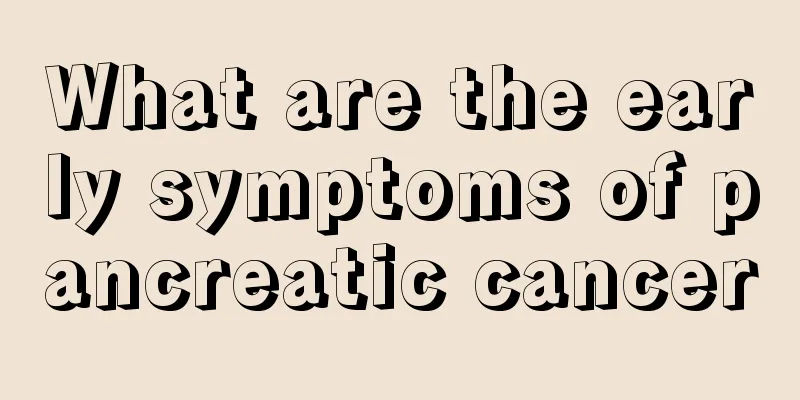What to do about nervous vomiting?

|
Some people experience frequent vomiting, and women are more likely to experience it than men. However, this vomiting is not a sign of pregnancy, but a disease called neurogenic vomiting. This disease is mostly caused by external factors, especially excessive psychological stress is a major cause of nervous vomiting, so people should pay attention to it. 1. Overview Neurogenic vomiting refers to a group of mental disorders characterized by spontaneous or deliberate recurrent vomiting of recently consumed food. The disease is not accompanied by other obvious symptoms and has no obvious organic lesions as its basis. Most patients do not have a fear of gaining weight or a desire to lose weight. A few patients are afraid of gaining weight and want to lose weight, but there is no obvious weight loss. The disease is more common in women than in men and usually occurs in early and middle adulthood. 2. Causes Neurogenic vomiting is often related to psychosocial factors and usually occurs under conditions of tension, bad mood, inner conflict, etc. Some patients have hysterical characteristics such as egocentrism, susceptibility to suggestion, emotional exaggeration and affectation. 3. Clinical manifestations Generally, vomiting occurs after eating, without obvious nausea or other discomfort. The disease recurred under similar circumstances later. Patients with vomiting deny that they are afraid of being fat and have the desire to lose weight. They are very concerned about their own health and often eat after vomiting, or even eat while vomiting. Vomiting does not affect their appetite for the next meal. Because the patient's total food intake does not decrease, there is no significant weight loss, and the weight usually remains above 80% of the normal weight. There is no endocrine disorder etc. 4. Inspection General physical examination and auxiliary examination did not reveal any organic disease Neurologic and medical causes of vomiting should be excluded. Ask about other symptoms. 5. Treatment Treatment of neurogenic vomiting requires a combination of psychotherapy and medication. Treatment. By clarifying the psychosocial factors related to neurotic vomiting, helping patients understand the psychological significance of vomiting, and providing targeted explanations, counseling, and supportive treatments; cognitive-behavioral therapy, aversion therapy, or behavioral therapy such as positive reinforcement can also be used to reduce vomiting behavior. In terms of drug treatment, symptomatic supportive treatment is carried out according to the severity of vomiting and the results of laboratory tests on water, electrolytes, and acid-base balance, such as giving vitamins and energy mixtures; symptomatic treatment of vomiting symptoms is carried out, and a small dose of intravenous drip of sulpiride is effective for vomiting. Drugs with anti-anxiety effects, such as antidepressants and antianxiety drugs, are also helpful in relieving symptoms. |
<<: What are the symptoms of Helicobacter pylori infection
>>: If you have a throbbing headache, why not take a look at these?
Recommend
How to care for breast fibroids
Breast fibroma is one of the important diseases t...
Why is the incidence of prostate cancer higher among the elderly? Analysis of the reasons for the high incidence of prostate cancer
Everyone is familiar with prostate cancer. It is ...
What are some tips for reducing eye swelling?
The condition of the eyes can have a great impact...
How to treat spasmodic cough? There are 4 ways
Spasmodic cough is a common disease in daily life...
Is it normal to have a tooth cavity after a week of tooth extraction?
As the saying goes, toothache is not a disease, b...
What medicine should I take for red and swollen tonsils
Red and swollen tonsils are a common symptom of t...
How should lung cancer patients be cared for after surgery? 5 things to know about lung cancer postoperative care
How should lung cancer patients be cared for afte...
Is there inflammation after lung cancer surgery?
In life, we are very afraid of various cancers be...
What to put in the middle layer of a three-door refrigerator
Nowadays three-door refrigerators are more popula...
Can foreign liquor be drunk directly?
Nowadays, people's living conditions have bec...
Can you still eat hatched pigeon eggs?
Many people wonder whether hatched pigeon eggs ca...
Symptoms and hazards of high blood viscosity
High blood viscosity is a very common disease in ...
What can be used to wash off dried blood stains
In daily life, the clothes we wear or the sheets ...
How to overcome psychological barriers
Psychological disorders are a type of psychologic...
What are the commonly used folk remedies for treating liver cancer? A complete list of commonly used folk remedies for treating liver cancer
A survey result recently released by the National...









